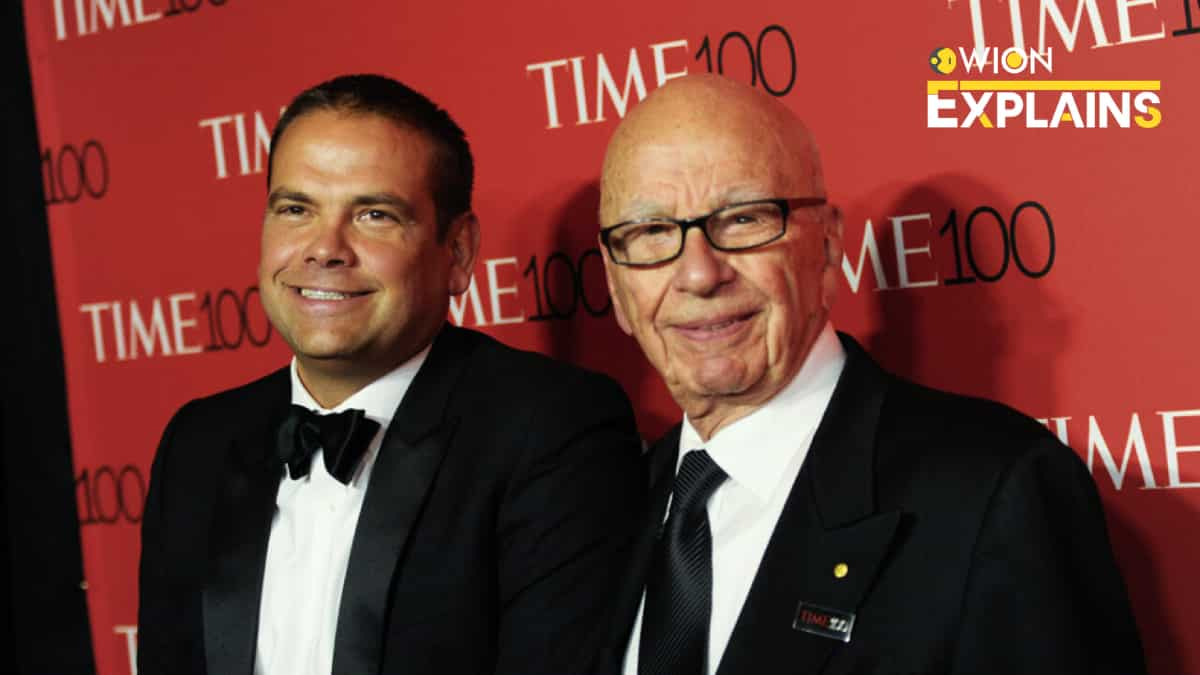Rupert Murdoch’s announcement of his retirement from the positions of chairman at both Fox Corporation and News Corporation has sent shockwaves through the media, news, and entertainment industries. The departure of the 98-year-old mogul, a towering figure in global media, is a pivotal moment in the evolution of media empires and their roles in shaping political and social discourse, influencing public opinion, and navigating the ongoing digital transformation.
Rupert Murdoch’s career in the media business spans some seven decades, which saw him build a sprawling empire of television networks, newspapers, film studios, and digital platforms. His influence has been far-reaching, impacting not only the media landscape but also the political and social fabric of nations.
He has been a dominant and often polarising figure in global media, known for his conservative editorial stances and his ability to shape public discourse. His companies have played pivotal roles in elections, policy debates, and cultural movements.
Lachlan Murdoch’s ascension
Stepping into his father’s shoes is Lachlan Murdoch, who has already been serving as the chief executive of Fox Corporation. Lachlan’s ascension to sole chairman of both Fox and News Corporation raises questions about the continuity of the Murdoch legacy and the potential changes in editorial direction and strategic priorities.
A key question is whether there will be a shift in the editorial direction of Murdoch-owned media outlets, especially Fox News, known for its right-wing editorial stance, often promoting conservative viewpoints and policies. Lachlan’s commitment to maintaining this ideological alignment is uncertain, as there have been reports of his private criticisms of former President Donald Trump.
Fox News played a significant role in shaping conservative politics in the US. During the Trump era, it became a staunch supporter of the administration, which led to accusations of promoting right-wing propaganda and misinformation. The network’s coverage of the 2020 election and its handling of election-related controversies, including false claims of voter fraud, have resulted in ongoing legal battles and defamation lawsuits.
As Lachlan takes the reins, he will need to carefully navigate the balance between maintaining the loyal conservative audience that Fox News has cultivated and addressing concerns about journalistic integrity and ethical standards.
Any significant editorial shift could have far-reaching consequences not only for Fox News but also for the broader landscape of conservative media in the US.
The evolving media landscape: From print-audiovisual to digital
Lachlan Murdoch will need to contend with the broader transformations in the media industry. The traditional television and print sectors have been grappling with declining audiences and revenues, as consumers increasingly turn to digital streaming services and online news platforms.
Rupert Murdoch’s retirement coincides with a period of intense disruption. The rise of streaming giants like Netflix, Amazon Prime Video, and Disney+ has challenged the dominance of traditional television networks. Digital news platforms have altered the way people consume news, with many now accessing information through social media and aggregator websites.
To remain competitive, Murdoch-owned media companies will need to adapt to these changes by investing in digital strategies, exploring new revenue models, and potentially reimagining their content distribution channels.
The fate of print publications owned by the company, such as The Wall Street Journal and the New York Post in the US and The Sun in the UK, will be a significant consideration in this evolving media ecosystem. While it’s unlikely that these publications will be abruptly discontinued, their long-term viability will depend on their ability to pivot toward digital platforms and engage a new generation of readers.
Legal and ethical challenges
Another critical aspect of the transition is the legal and ethical challenges that have plagued Murdoch’s media empire.
Fox News, in particular, faced defamation lawsuits related to its US election coverage, with Dominion Voting Systems and Smartmatic pursuing legal action against the network. Fox News settled the Dominion lawsuit for a historic $787.5 million, while also axing its popular anchor Tucker Carlson possibly as part of the settlement, but the Smartmatic lawsuit continues.
Lachlan Murdoch will inherit these legal challenges and will be responsible for managing the fallout. He will need to ensure that the companies under his leadership uphold rigorous journalistic standards, adhere to fact-checking practices, and maintain ethical reporting practices.
The handling of these lawsuits will impact the credibility and public perception of Murdoch-owned media outlets.
Rupert Murdoch’s influence extends beyond the borders of the United States. His media empire encompasses assets in the United Kingdom and Australia, where his newspapers and television networks have played influential roles in shaping public opinion and politics for decades.
Murdoch’s foray into British media gave him unparalleled reach and political influence in the United Kingdom. In his native Australia, Murdoch’s News Corp holds a significant share of the media market, and his influence has been a subject of debate and scrutiny.
Lachlan Murdoch’s leadership will have implications not only for the Australian media landscape but also for the broader global media, particularly in countries where Murdoch-owned outlets operate.
Rupert Murdoch’s career has been marked by significant acquisitions, expansions, and controversies.
He made a substantial impact on the film industry by acquiring 20th Century Fox and played a crucial role in the rise of cable news with the launch of Fox News in 1996.
His ownership of newspapers like The New York Post and The Wall Street Journal has shaped the trajectory of print journalism in the digital age.
However, Murdoch’s legacy is not without its controversies. His media outlets have been accused of downplaying climate science and promoting climate change denial. The network’s promotion of conspiracy theories, particularly during the Trump era, has drawn criticism from media watchdogs and fact-checkers.
Murdoch’s retirement and the transition to Lachlan Murdoch represent a momentous shift in the media landscape. As media companies grapple with changing consumer preferences and technological advancements, the future direction of Murdoch-owned media entities will be closely watched.
recommended stories
recommended stories
You can now write for wionews.com and be a part of the community. Share your stories and opinions with us here.




